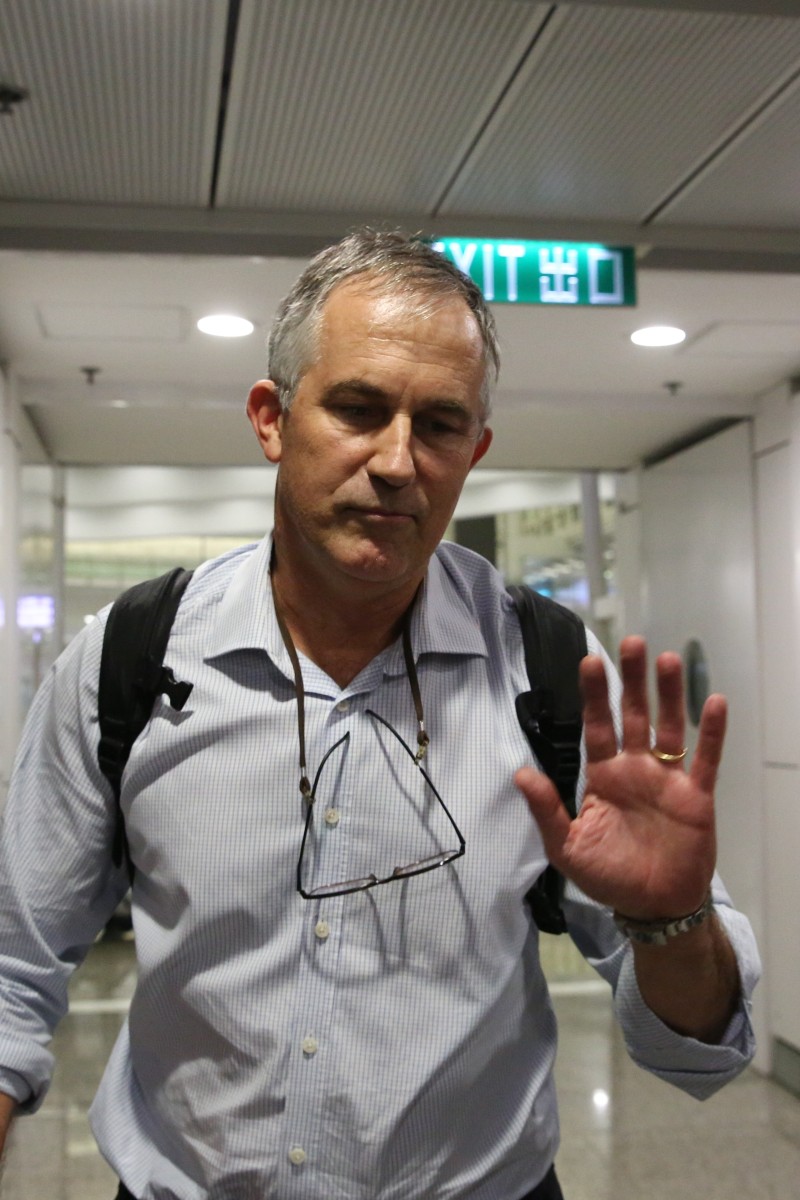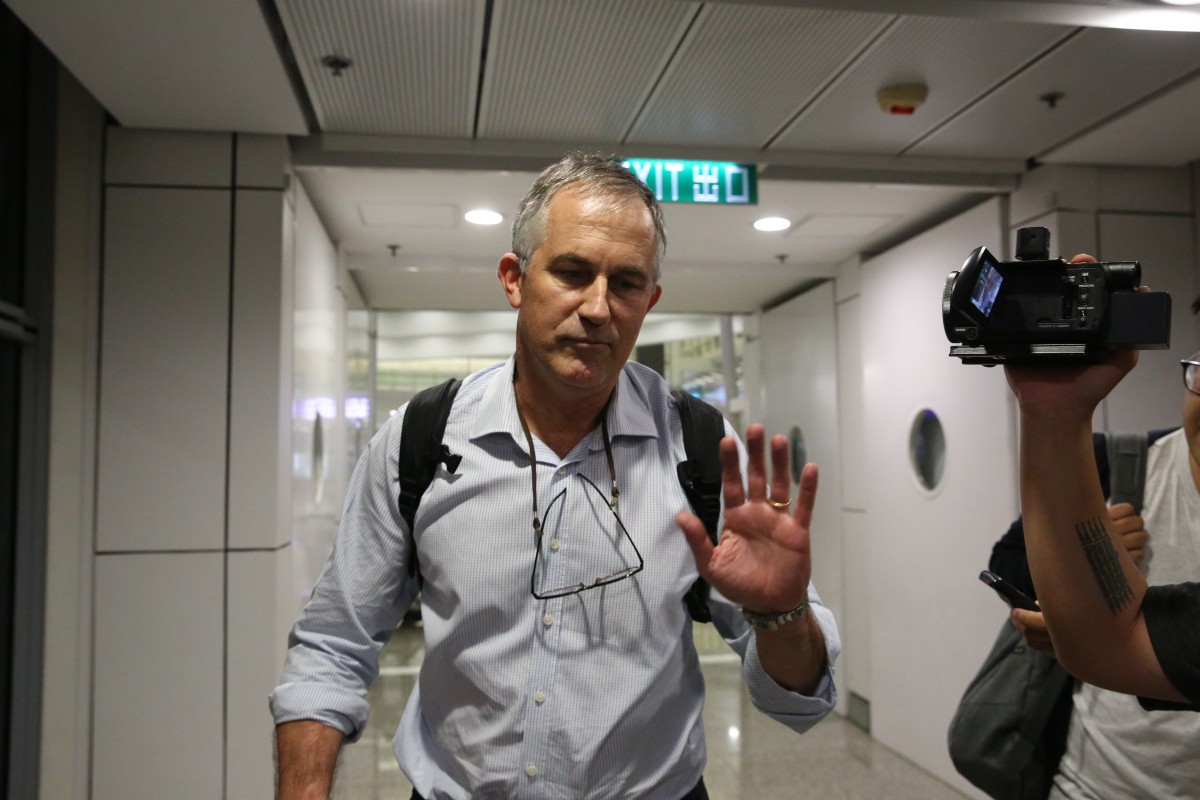
Press Freedom Day 2019: Hong Kong’s freedom is in decline, and students are worried
The city dropped three places in the annual rankings issued by Reporters Without Borders, an NGO that promotes and defends the freedom to be informed and to inform others
 Victor Mallet has become persona non grata without any explanation.
Victor Mallet has become persona non grata without any explanation. Increasing intervention from Beijing, the chilling effect of some “troubling” incidents, and government policies that curtail free expression are what caused the decline of Hong Kong’s press freedom, said Jason Y. Ng, convenor of the Progressive Lawyers Group.
Speaking to Young Post today, which is World Press Freedom Day, Ng said the most troubling and notable incident was the expulsion of Financial Times Asia editor Victor Mallet last October, “for merely hosting a lunch talk”.
He added, “The proposed extradition amendment bill will add to that chilling effect by putting at risk the personal safety of Hong Kong-based journalists reporting on China.”
He was referring to a bill which, if passed, will mean Hong Kong can hand over fugitives to jurisdictions with whom it has no extradition deal, including the mainland, Taiwan, and Macau.
In the 2019 World Press Freedom Index, the city was ranked 73rd of 180 countries, dropping three places from last year. Meanwhile, China came 177th, followed by Eritrea, North Korea and Turkmenistan right at the bottom.
According to Reporters Without Borders, which has been publishing the annual index since 2002, Beijing’s influence has led to a decline in press freedom in Hong Kong, which was supposed to enjoy a distinct status as a special administrative region until 2049.
“Press freedom will worsen in the coming years. The only question is how fast,” said Ng. “The answer depends on how hard the press, civil society and the public at large are willing to work together to push back.”
Karl Lam, 17, from German Swiss International School, agreed. “The future of the press in Hong Kong seems to be one of increasing control and censorship, which is why it’s so important for influential voices to speak up and remain resilient within the media industry.”
He said that people should promote open-mindedness, tolerance, and moral values among today’s youth, and that banning books and media was certainly not the way to go.
Joy Lee, a 15-year-old student at South Island School, pointed out the importance of press freedom. “Being able to keep people in the know in terms of what is going on in our city and the world is crucial to stimulating meaningful discourse over how to make it better,” she said.
“When we begin to restrict the press, we restrict the free flow of information, and thus the voice of the people.”
Jacqueline Guico, a 19-year-old student at Belilios Public School, told Young Post that press freedom was important, but also disappearing.
“I think [press freedom] is getting worse not only in Hong Kong but also on a global scale. I think it’s because people are more sensitive and radical now than before that they do not keep an open mind in welcoming different opinions,” she said.
She added that if one were to criticize the government, even if the criticism was constructive, they were more likely to face backlash, and in more serious scenarios, receive death threats or be jailed simply for stating their opinions. In these situations, they would rather practise self-censorship, as their job, reputation or even life might be at stake.
The Reporters Without Border report also said that more than half of Hong Kong’s media owners, most of whom have major business interests in mainland China, were members of political bodies on the mainland such as the National People’s Congress and the Chinese People’s Political Consultative Conference.
Yet it also acknowledged there was resistance in the city, being led by independent media like Citizen News, The Initium, Hong Kong Free Press and inMedia.
You might also like:
Press Freedom Day 2019: What do I need to know to ensure I'm not reading #fakenews?
